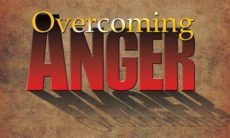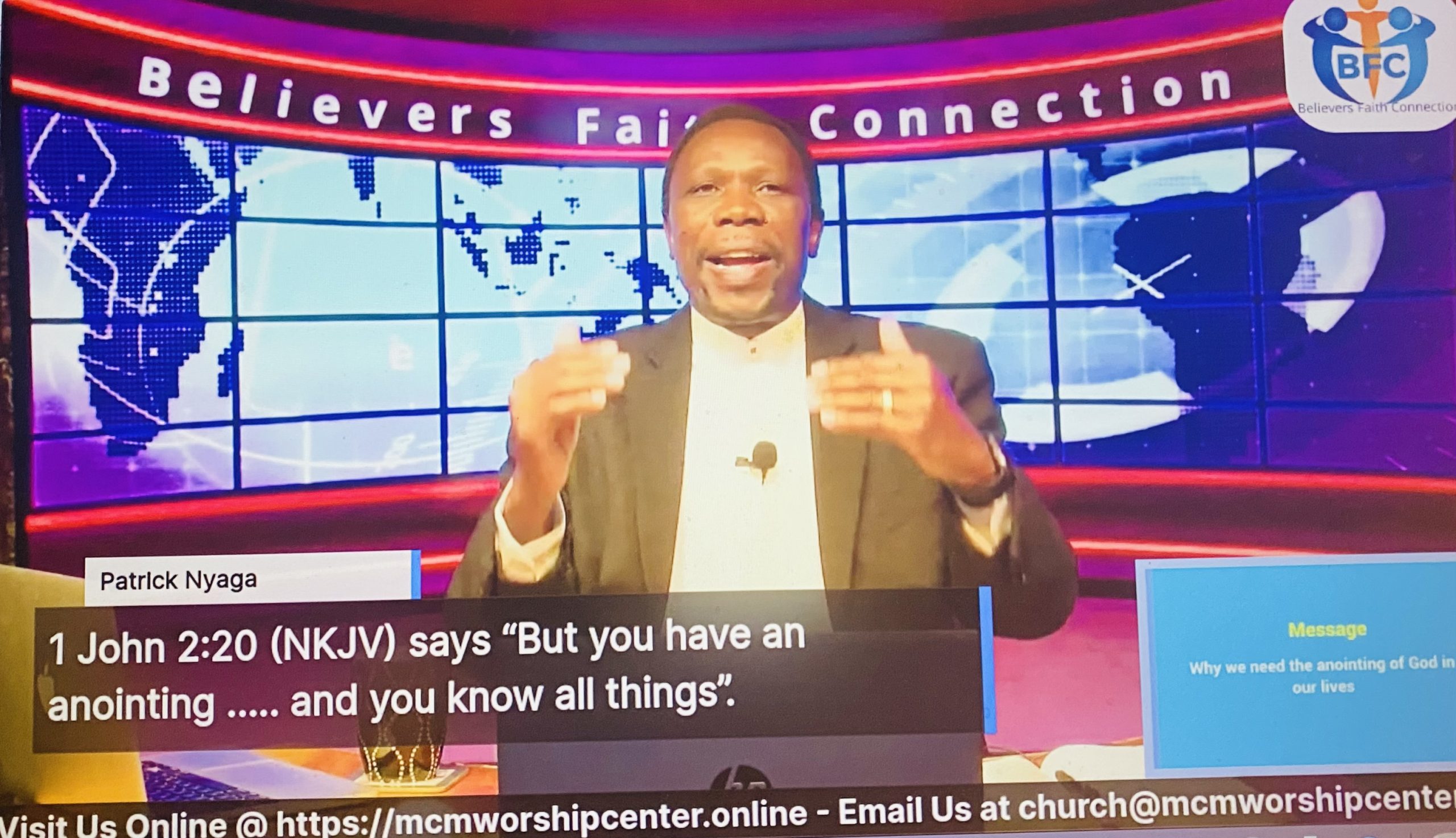Fasting increases one’s sensitivity in the spirit
As you empty yourself physically and spiritually, you open the door for God to step in and do the miraculous. Your relationship with the Lord is taken to a whole new level. You also become more sensitive to the work of the Holy Spirit, which enables you to hear God’s voice more clearly.
Anyone who has done a fast — whether absolute, liquid, or partial — would agree fasting is difficult. Physically, you may suffer from unpleasant side effects, such as headaches, fatigue, and intestinal discomfort, as your body attempts to adjust to the reduced caloric intake. Spiritually, attacks from the Enemy increase in frequency and intensity, resulting in a barrage of frustrations that can seem overwhelming. However, the same people who would be honest about the challenges of fasting would also concur that the sacrifices are well worth the rewards. So don’t resist the suffering that accompanies fasting. Rejoice in it! Fasting is a spiritual exercise which God honors. He promises to heap blessings on people who are hungry for Him (Matthew 5:6).
Note: As always, consult your doctor before considering any change in your diet.
God promises that through Jesus Christ, prayer and fasting will be duly rewarded. Fasting works because it puts us in an attitude of humility, trust and unselfishness. It’s not supposed to work because we do it for the sake of doing it, but because we surrender our hearts to the Lord and set aside the time, necessity, and the pleasure of taking a meal, to come to God in prayer and petition. 1 Corinthians 15:58 promises to us, “Be steadfast, immovable, always abounding in the work of the Lord, knowing that your labor is not in vain in the Lord.”
There are a wide variety of ways to fast. Some people fast for a full day, some take one meal and others eat only fruits and vegetables. There’s really no best way to fast because what matters most is not the act but the position of the spirit and the heart. We shall discuss the types of fasting later in the sermon.
How Long should one fast?
To answer that question, we need to understand about the types of fast
There are four main types of fasts we can consider. Each one has different aspects, so the duration and the choice of fast will largely depend on the circumstances and goals of each individual.
1) Total Fast
In this type of fast, no food is eaten. There are several examples in the Bible of extended total fasts. Both Jesus and Moses fasted for 40 days, but those examples are miraculous. Outside of the miraculous, total fasts should be limited to three days for most people. Though some people with more experience do choose to fast longer.
2) Selective Fast
Some people only choose to give up certain foods. There is an example of this in Daniel chapter 10. Daniel says that for three weeks, he ate no “delicacies” or “choice foods.” He also did not eat meat or drink wine during that time. You could give up certain foods, do only a liquid diet (e.g. smoothies, juices), etc. The point is to deny the flesh and devote yourself to prayer, so you can choose to give up some of the things that you know your flesh really wants. Just be sure to think through any medical implications and consult physicians when appropriate. Use wisdom.
One thing to keep in mind is that if you start out with a selective fast, you can always take it up a notch later on. For example, you could start out on day one just fasting meat, bread, and sweets. By day three, as you’re getting closer to God and denying your flesh, you might decide to do liquids only. By day five, you might decide to do the last three days in a total fast.
3) Intermittent Fasting – Certain times of day fasting
Sometimes people choose, during an extended period of time, not to eat during certain hours of the day. For example, the Jews sometimes used to fast during daylight hours on certain days and at certain times of the year.
4) Soul Fast
Sometimes people give up things like TV, music, or social media when they fast. This is especially helpful when people have medical problems that prevent them from doing food-related fasts. 1 Corinthians 7:5 describes a married couple mutually agreeing to fast from sexual relations so that they can devote themselves to prayer.
What we should not do when fasting
There are 5 main things we should NOT do when fasting.
- We should never fast to impress others.
- We shouldn’t allow our fasting to become an undue burdensome responsibility to your friends and family
- We should not ignore our family. We should instead either involve them by consulting them regarding the fast. Let your spouse and children know beforehand and make sure they are willing to walk through this with you. They don’t have to fast with you, but they should understand that it will affect the home environment and daily family routine if you have one. Why? Because you will be drawing near to God and away from normal activities.
- Also, we shouldn’t think we have to make fasting any harder than it already is by choosing to fast during holidays or other such events. There will always be some challenges to fasting, but as an example, we shouldn’t take it on ourselves to fast Thanksgiving or Christmas.
- You should never decide hastily or get convinced by someone to go on a fast when you are NOT ready. Choose wisely. When we fast, we have to think through the kind of commitment we’re making. We don’t want to set ourselves up for failure, but we do want to make a significant commitment. What you don’t want to do, especially if you have never fasted before, is start out overly zealous. Say – you want to do a 7-day total fast, Step one is to pray before you fast and ask the Holy Spirit to give you wisdom and guidance through your fast.
In Joshua chapter 2, we read that he first scouted out the land. Joshua didn’t just charge into the city. He wasn’t anxious. He employed wisdom by sending in spies first. Joshua wanted to make sure the walls of Jericho were going to fall. But that result wouldn’t come by being hasty, rushing, or foolish.
Wisdom in breaking a fast
Breaking the fast may require as much discipline as beginning it. During the fast, your stomach contracts and your body’s digestive and elimination systems rest. The longer you fast, the more time the digestive organs need to reactivate before functioning at full speed.
If you plan to fast only a day or two at a time, it is best to end the fast with a small glass of fruit juice as your first meal. Gradually introduce small amounts of easily digestible foods such as yogurt, soup, fresh fruit and cooked vegetables.
If your fast lasts longer than a few days, you should continue with juices for a day or more before gradually introducing more substantial foods like yogurt, soup and fruit. Be sure you introduce new foods in small quantities and chew well. You should stop eating as soon as you begin feeling full.
If fasting for only a few days at a time, ending the fast should be easier. If you have built up to and desire to fast longer, you should consult your physician and review a health book on fasting.
Remember, it is your attitude toward God and your walk with Him that is important, not how long you fast. God desires for you to love, obey, follow and enjoy Him. Deliberately abstaining from food is one way to demonstrate your commitment and sincerity in seeking Him.
A suggested prayer before fasting
Dear Heavenly Father, I come to You, Lord, with a humble heart and ask You to strengthen me for this battle. Show me what I need to fast and reveal to me what I need to do before I undertake this time of fasting and prayer. Give me the wisdom and strength to overcome fear of this situation. Go before me and put a hedge of protection over me. Cover me with the blood, in Jesus’ name, Amen.
Fasting as a sign of humility before God
When you humble yourself in this way, the Lord will give you spiritual eyes and a spiritual outlook. Then you can be aware and alert and awake, like Rahab. She was spared from destruction because she helped hide the spies who had come there from Israel. It was because of her willing spirit and her faithfulness that she was spared. Not only did she make a deal to hide the spies, she followed through. She did her part.
This is just my best guess, but I believe Rahab was already praying to the God of Israel to spare her and her family from the impending judgment on Jericho. When the two spies came through, she believed it was the providential opportunity for which she had been praying, and she began to demonstrate her faith by action.
This is your opportunity. You’ve been asking for a way out of your situation. Stuck for a long time, you’ve asked for change but it hasn’t come yet. God is giving you a way out. He’s offering to rescue you and your family, but you have to make a commitment and then be faithful.
Click the links below to check out the recent posts on demand…
Download Audio
Download PDF









